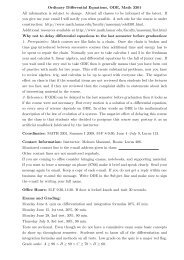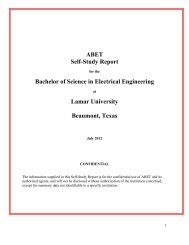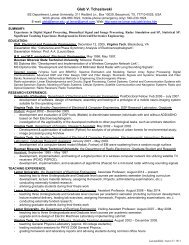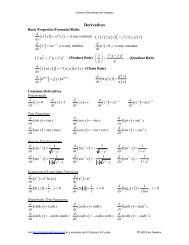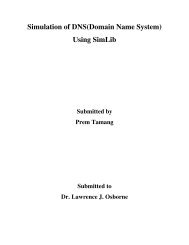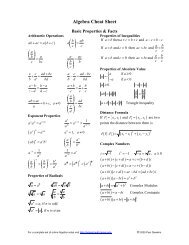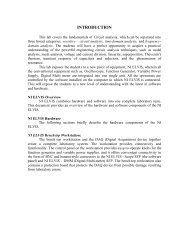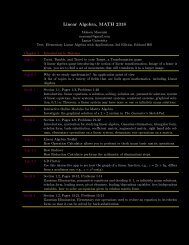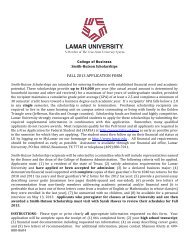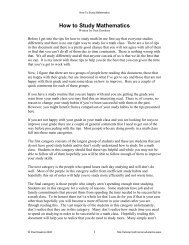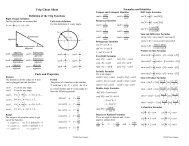program self-study report - Lamar University Electrical Engineering
program self-study report - Lamar University Electrical Engineering
program self-study report - Lamar University Electrical Engineering
You also want an ePaper? Increase the reach of your titles
YUMPU automatically turns print PDFs into web optimized ePapers that Google loves.
Design is the heart of engineering and it distinguishes engineering from science. Design is integratedthroughout the <strong>program</strong> starting with the first electrical engineering introductory course, ELEN1200.Design continues in circuits and electronics, ELEN2311 and ELEN3321 and their attendant laboratories.The design process culminates with our ELEN4206/4207 Senior Projects series. The goal of the designexperience is to be able to apply the fundamentals of electrical engineering to identify, formulate, andsolve engineering problems and this is a core aspect of how we prepare our students for engineeringpractice.3.2 Program OutcomesOur educational outcomes are determined from performance in courses and the outcomes are assessed byassignments, participation and exams. The linkage between <strong>program</strong> outcomes and course topics isestablished by the online syllabi for each course. The educational outcomes that our students can expect toderive from the <strong>Lamar</strong> <strong>University</strong> <strong>Electrical</strong> <strong>Engineering</strong> Program are the following:• apply knowledge of the physical sciences, mathematics, and engineering fundamentalsto the solution of electrical engineering problems.• design and conduct experiments in electrical engineering, and to analyze and interpretthe data generated by those experiments.• design components, devices, and systems to meet specific needs in electricalengineering.• work effectively on multi-disciplinary teams involving people from diverse backgrounds.• identify and define problems in electrical and computer engineering, and to generateand evaluate solutions to those problems.• understand the professional and ethical responsibilities incumbent upon the practicingelectrical engineer.• communicate effectively, both orally and in writing, in the field of electrical engineering.• understand the role and impact of electrical engineering in a broader societal and globalcontext.• recognize and respond to the need for life-long learning for a successful career inelectrical engineering.• develop an understanding of contemporary technical and professional issues in thepractice of electrical engineering.• use the techniques, skills, and tools of modern engineering, including the use ofcomputer-based technologies such as <strong>program</strong>ming, use of engineering and businessapplications, and the use of electronic media, effectively in the practice of electricalengineering.EE Program Self-Study Report-2006 17




